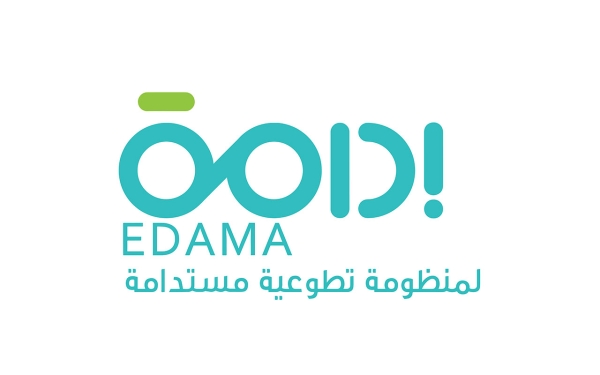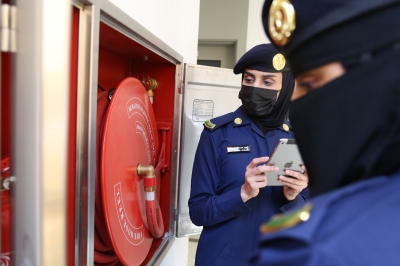

The Saudi National Standard of Voluntary Work 'EDAMA' is a framework for managing volunteer work in a structured manner within volunteer organizations in the Kingdom of Saudi Arabia. It was developed based on best practices in the volunteer sector. Work on the standard began on June 9, 2013, and it was officially adopted by the Ministry of Human Resources and Social Development on November 27, 2018.
The Edama Standard aims to lead volunteer management in organizations by building a scientifically and practically based knowledge framework, demonstrating its effectiveness and efficiency. This contributes to effectively utilizing volunteers' efforts, supporting the mission and objectives of organizations, and increasing community engagement by enabling the establishment of volunteer units within organizations. Additionally, it fosters a sense of citizenship among members of society.
Objectives of the Saudi National Standard of Voluntary Work 'EDAMA'
The Saudi National Standard of Voluntary Work 'EDAMA' aims to achieve several goals that serve the volunteering fields, including empowering organizations to make effective use of volunteer efforts, organizing and standardizing the administrative and professional practices of volunteer operations, and aligning volunteer activities with the strategies of various sectors. It also seeks to align volunteer efforts and activities with the strategies of different sectors and link volunteering operations in organizations with Saudi Vision 2030.
Design of the Saudi National Standard of Voluntary Work 'EDAMA'
The Saudi National Volunteering Standard 'Edama' was designed through several steps, starting with a desk survey of various global organizations and international standards, including the Canadian, Australian, and British standards. Comparisons were made to identify similarities and differences. Field requirements were gathered through workshops and focus groups. The British standard served as a foundation for the model's design, with British experts brought in to conduct workshops and review elements of the British standard. The model was then developed by adapting the British standard through modifications, including additions and deletions. After further review by experts, the final version of the standard was released.
Indicators of the Saudi National Standard of Voluntary Work 'EDAMA'
The standard includes a set of indicators distributed across forty-two practices, divided into two levels. The first level contains thirty practices for managing volunteer work, while the second level includes twelve advanced practices. These practices encompass nine indicators: commitment and dedication, retention of necessary resources, development of appropriate opportunities, protection of volunteers, recruitment processes, volunteer orientation, volunteer support, recognition of volunteers' importance, and use of technology.
Establishing volunteer units in organizations according to the 'Edama' standard
The Edama standard outlines several requirements for establishing volunteer units within organizations. These include the organization's desire and request for registration, having an appropriate space for the volunteer unit within the organization, appointing a dedicated volunteer manager (full-time or part-time) with a contract lasting at least one year, holding a valid and recognized license for the organization, and ensuring that the remaining term of the board of directors is at least one year. Additionally, the volunteer entity must be included in the organization's organizational structure, and the organization's policies and regulations must not conflict with the goals of volunteer engagement.
In 2021, the Ministry of Human Resources and Social Development recognized the King Abdulaziz Center for World Culture (Ithra) as the first volunteer unit to implement the Saudi National Standard of Voluntary Work 'EDAMA' among 280 volunteer organizations in the Kingdom. This recognition was due to its efforts in offering volunteer programs and initiatives to the community.
Related quizzes

